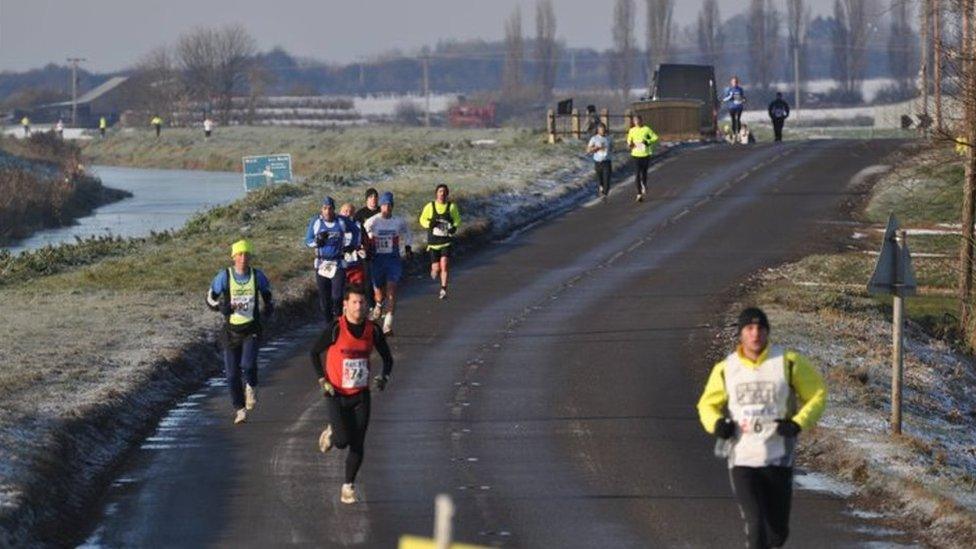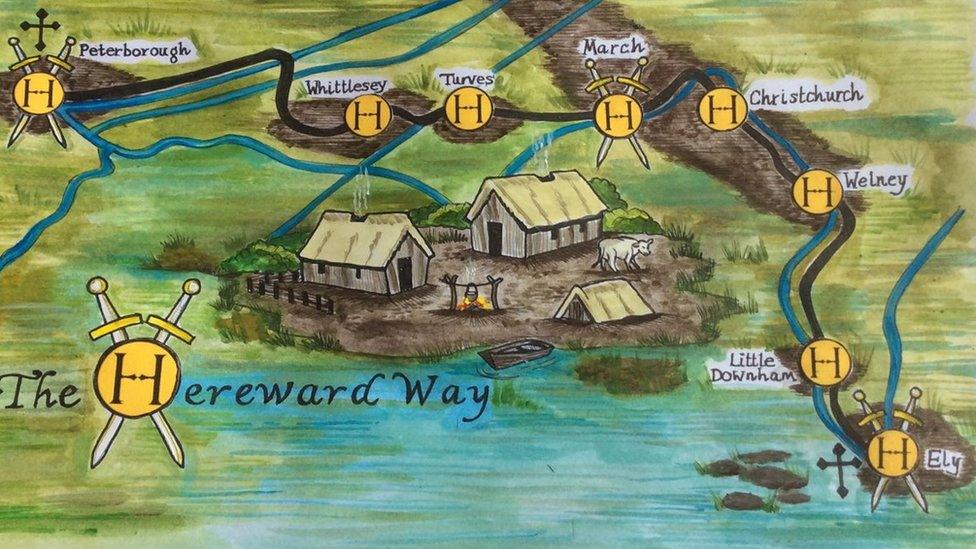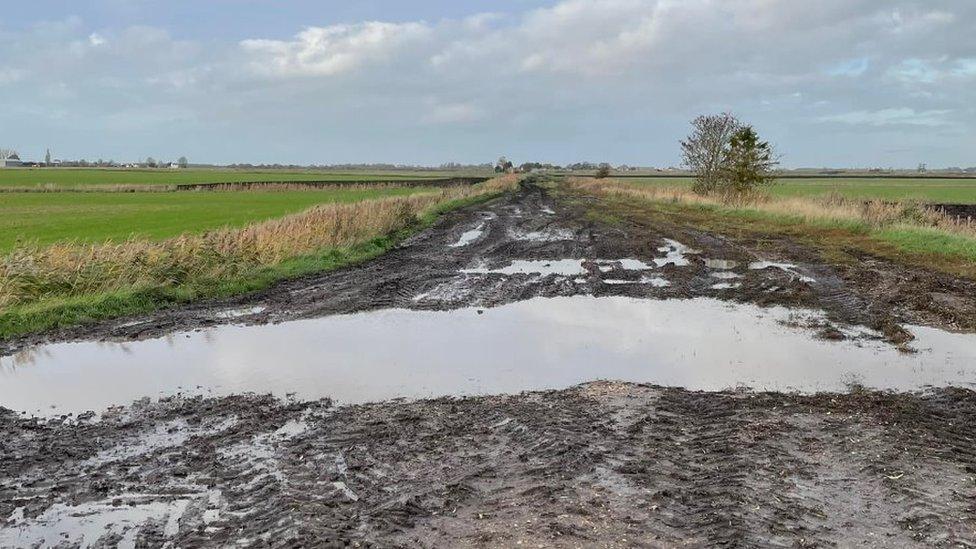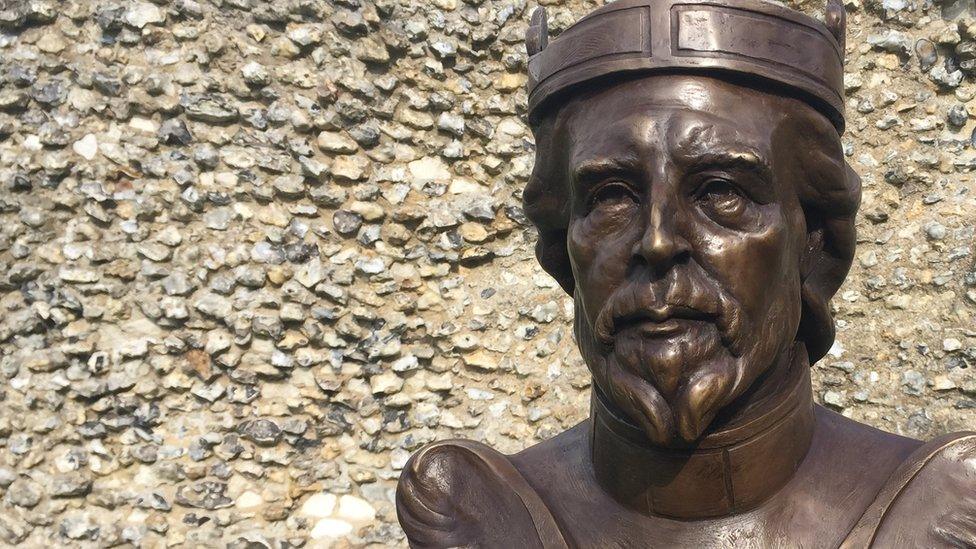Hereward Relay race through Fens celebrates its 25th anniversary
- Published

Runners have been taking part in the Hereward Relay for 25 years
A race along part of a route used by an Anglo-Saxon folklore legend is celebrating its 25th year.
The 40-mile (64km) Hereward Relay sees about 400 runners tackling a route from Peterborough to Ely, along the Hereward Way.
The Cambridgeshire race was started in 1998 by Peter Jackman, now 93.
The Hereward Way was named after Hereward the Wake - a nobleman who held out at Ely against invading forces after the Norman Conquest of 1066.
Mr Jackman came up with the idea of the race after reading a book about the route through the Fens.
Although he has run parts of it many times, he has never actually taken part in the race he created.

Runners follow a route from Peterborough to Ely
"I've always been too busy organising it," he said.
"It is a relay as I didn't think anyone could run the lot, but this year we've got 19 people running the whole lot."
Participants come from as far as London, Birmingham and Yorkshire "and they say it's completely different - so isolated", Mr Jackman said.
"The beauty of this course is its variation and 70% is off-road - you're right out in the wilderness.
"The Fens has got its own particular beauty, hasn't it?"

Much of the route is off-road and the terrain can be challenging
David Maile, 65, is director of the WakeHereward Project, which aims to raise the profile of Hereward the Wake, who he calls "our local folklore hero".
"I'd been brought up on his legend, being a local Fen lad," he said.
"Five years after the Battle of Hastings... people think it's all over between William the Conqueror and the English - but five years later, Hereward the Wake was still resisting the Norman Conquest right here," he said.
The Battle of Hastings took place on 14 October 1066 and was fought between William of Normandy's army from France and King Harold II's English army.
More than 10,000 people were killed including Harold who, legend has it, died from an arrow in the eye, as depicted on the Bayeux Tapestry.
The Anglo-Saxons had ruled the land for more than 600 years since the Roman times.
Mr Maile said the Hereward Way, along which Sunday's race takes place, "was formed in 1986 by people from the ramblers' organisation in Peterborough and is the only national monument to Hereward".

Follow East of England news on Facebook, external, Instagram, external and X, external. Got a story? Email eastofenglandnews@bbc.co.uk, external or WhatsApp us on 0800 169 1830
Related topics
- Published14 October 2016
